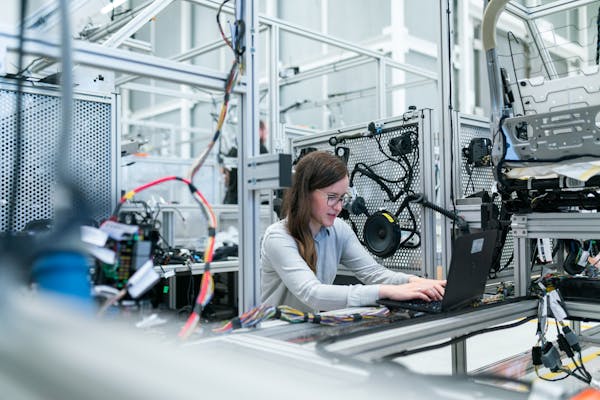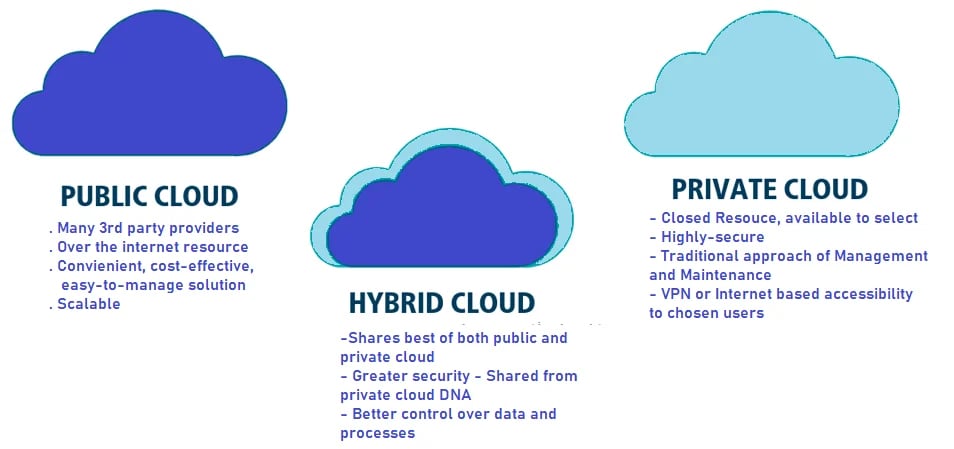Emotion AI: Can Machines Feel Emotions? No, But They Can Recognize Ours
Beni Gradwohl, co-founder and CEO of Cognovi Labs, joins host Dara Tarkowski to go over psychological synthetic intelligence (AI), also known as “affective computing.”
- Emotion AI (also acknowledged as affective computing or artificial psychological intelligence) is a branch of artificial intelligence that steps and learns to realize humans’ feelings, then simulates and reacts to them.
- Cognovi Labs CEO Beni Gradwohl is acquiring a psychology-driven synthetic intelligence (AI) platform that will help consumers in the professional, wellness and general public sectors achieve insights into their customers’ or audiences’ thoughts in order to forecast their choices. This understanding also can help consumers better communicate with their constituents.
- Beni joins me to go over his unconventional career journey, Cognovi’s tech and why, in the wake of a worldwide pandemic, Emotion AI is extra related than at any time.
We human beings are social animals. We’re born with neurons that assist us recognize facial expressions, voice inflections and human body language, as effectively as the capability to adjust our interactions with some others appropriately. Most of us refine these abilities and increase new types as we improve.
We’re actually wired to browse thoughts.
But in our era of fast modify, how can we do that at scale and in genuine time?
Ben-Ami (“Beni”) Gradwohl, co-founder and CEO of Dayton, Ohio-based mostly startup Cognovi Labs, is performing to practice equipment to evaluate and understand humans’ emotional responses. Introduced in 2016, Cognovi is at the forefront of innovation in the artificial emotional intelligence (AI) room. The company’s psychology-driven AI system can help purchasers in the commercial, health and public sectors obtain insights into how their consumers or audiences come to feel, predict their decisions and converse in techniques that complement these thoughts.
“At least 50 years of exploration in psychology, neurology and behavioral sciences have shown that we are not as rational as we feel we are,” says Beni. “In truth, the huge the greater part of decisions we make are built by the subconscious head, based mostly on emotions.”
Though Emotion AI is in its infancy, it’s a lot more relevant than at any time — and if AI can assistance us have an understanding of human emotional responses, can it be used to influence persons for the better great?
On an episode of Tech on Reg, I spoke to Beni about his vocation route, Cognovi’s tech and why psychological intelligence (EQ) is the foreseeable future of AI.
From academia to AI
When Beni was growing up, AI was purely science fiction. In truth, his unique job path was closer to “Cosmos” than “Battlestar Galactica.” A trained astrophysicist, he used a couple decades in academia right before pivoting to finance for two many years, to start with at Morgan Stanley and then at Citi.
In the late ‘90s, he took a course at Harvard in behavioral economics and behavioral finance, which were being however fairly new ideas in the business enterprise globe. That was the commencing of a journey that in the end led him to start Cognovi Labs.
“I came from this quantitative do the job the place anything had to do with details, but this course was an eye-opener,” Beni recollects. “I stated, my gosh — the world does not revolve all-around hard details. It’s actually all-around how folks make decisions.”
But by the time he joined Citi for the duration of the economic crisis of 2008 — as component of a senior management workforce tasked with stabilizing the bank’s home finance loan portfolio — he identified the urgent need to have for organization “to systematically have an understanding of how we make selections, so we can help modern society in a much better way.”
The new EQ
The company’s identify is a portmanteau of cognitive and novus (the Latin word for “new”), while the subject of synthetic emotional intelligence dates again to about 1997, when MIT Media Lab professor Rosalind Picard published “Affective Computing” and kicked off an fully new branch of laptop science.
In an short article about Emotion AI on the MIT Sloan School of Company website, writer Meredith Sloan asks:
What did you think of the previous professional you watched? Was it funny? Confusing? Would you get the item? You may not don’t forget or know for specific how you felt, but progressively, devices do. New artificial intelligence systems are mastering and recognizing human feelings, and using that expertise to boost anything from promoting strategies to wellness care.
Beni factors out that Emotion AI “uses equipment learning to replicate what we do as human beings working day in and working day out, which is to recognize people’s feelings.”
Paradoxically, most individuals come to feel unpleasant speaking about or sharing their inner thoughts, he notes. “Some individuals can’t even confess their inner thoughts to by themselves.”
But psychological wellness “came into these kinds of sharp target for the duration of the pandemic, since so numerous folks have been battling so a lot for so a lot of distinctive motives … feeling isolated, worried, sick. Anything was in flux,” he provides.
Understanding emotions to assess motivations
Extra than ever, we know that emotional wellness is aspect of over-all health, and that (on a own amount) we should really attempt to recognize and control our thoughts. At get the job done, Beni suggests that we will need both equally IQ (to examine and dilemma solve) and EQ (emotional intelligence, to recognize the social and emotional cues of many others). And for the reason that 90% of selections are designed by the subconscious brain centered on feelings, knowing thoughts is very important.
“If it’s critical, let’s measure it,” suggests Beni. “And let’s just evaluate it in a way that also [ allows us ] to generate price.”
Not all of us have a significant EQ. Some people are incapable of recognizing feelings — or simply just much less perceptive of them — thanks to neurodivergence. Even hugely emotionally clever people could not absolutely understand the breadth of human emotion, or they may misinterpret the emotional motivation of one more particular person. And though most of us can convey to persons are angry when they yell, or unhappy when they cry, it’s a ton additional complicated to go through an posting (and get others to agree on) the writer’s tone or mood.
“You can extract emotions with visuals … [ and ] audio, like if somebody shouts or slows down or pauses. And you can do it as a result of sensors [ that measure ] coronary heart prices and irrespective of whether people are perspiring,” says Beni.
Textual content is a little bit much more difficult. Social media posts, discussion community forums, e-mails, transcriptions of conferences or phone calls — they’re all facts that (via Cognovi’s proprietary IP) are segmented and analyzed in get to extract and characterize the emotions of the persons crafting or conversing.
Within the understanding machine
When examining a given textual content, Cognovi’s AI to start with identifies the subject at hand: Is the discussion about “buying Nike sneakers, or about politics, or about the war in Ukraine?” Beni asks.
Up coming, the AI extracts the underlying emotional undertone of the text and kinds it into one of 10 emotions: pleasure, anger, disgust, panic, sadness, shock, amusement, rely on, contempt and command.
Then, it quantifies how feelings drive the inclination or impulse to act in particular methods, if folks act at all (“if they’re not [ feeling ] thoughts, they are not going to do everything,” claims Beni). The output depends solely on the knowledge the consumer gives. Some clients supply text from social media posts, dialogue boards, weblogs and other publicly readily available data. Many others want to use surveys they develop (or question Cognovi to aid them build surveys), which offer “rich information” that allows shoppers recognize why their audience customers behave the way they do.
Unblocking the blockers
A person these types of client was a pharmaceutical company looking for approaches to better sector a highly powerful, but underneath-approved drug to medical practitioners. Even nevertheless the business analyzed its very own details to section doctors into teams, it nevertheless couldn’t determine out why some health professionals in a selected condition did not prescribe the drug to their people.
“Similarly to legal professionals, we generally consider that doctors are entirely rational,” Beni points out. “There is analysis displaying that even in scientific choices, health professionals are really psychological.”
The corporation necessary “to determine out the emotional blockers and the psychological drivers,” he provides. “Because there were evidently no rational factors not to give sufferers that medicine. It was not similar to value or reimbursement or to aspect outcomes. There was a little something else going on.”
So the Cognovi crew (which involves a healthcare health practitioner) developed a tailor made survey it referred to as the “diagnostic interview,” a 10-question questionnaire intended to broach concerns similar to the issue the drug treats — in a way that generated potent psychological responses from prescribers.
The ensuing data discovered a specific psychological inhibitor that the customer promptly acknowledged, telling Beni they experienced recognised for 10 years that this distinct “blocker” could be an challenge. Once they understood for absolutely sure, they could confront it head-on and communicate frankly about it to medical professionals.
Long run curiosity
Blame Hollywood: Thanks to motion pictures and Tv set about robots long gone horribly erroneous, quite a few men and women have a tendency to assume of AI as menacing or worrisome at ideal. As a longtime educator, Beni has seen that his learners have develop into extra interested in the philosophical, ethical and ethical problems all-around AI than the technological types.
But Emotion AI aims to “augment one thing we should be doing much better than we are,” says Beni. “If we are much more emotionally intelligent, the planet I imagine [ will experience ] much less crime, I feel there will be significantly less war. … Any technological innovation, any capability [ we have ], we should really do it.”
However, he feels strongly that we can not carry on to innovate devoid of any governance. Simply because AI signifies an completely new established of difficulties, we have to rethink rules and oversight — as effectively as our approaches to privateness and protection.
Now, he thinks several organizations test to “understand their folks greater to do correct by their shoppers and their staff,” since everybody struggles occasionally.
“Maybe what is occurring at Cognovi can support businesses to make a variance.”
Beni is aware of one particular point for certain: “How we use AI, how we control AI, and how we do it for the much better will adjust how our young children are going to develop up. So get included. That is my recommendation to all people: regardless of whether you’re a tech person, or a thinker, a lawyer or a social scientist, there is a role to be played — for you to shape the long term.”
This is based on an episode of Tech on Reg, a podcast that explores all matters at the intersection of law, technologies and hugely regulated industries. Be certain to subscribe for foreseeable future episodes.






